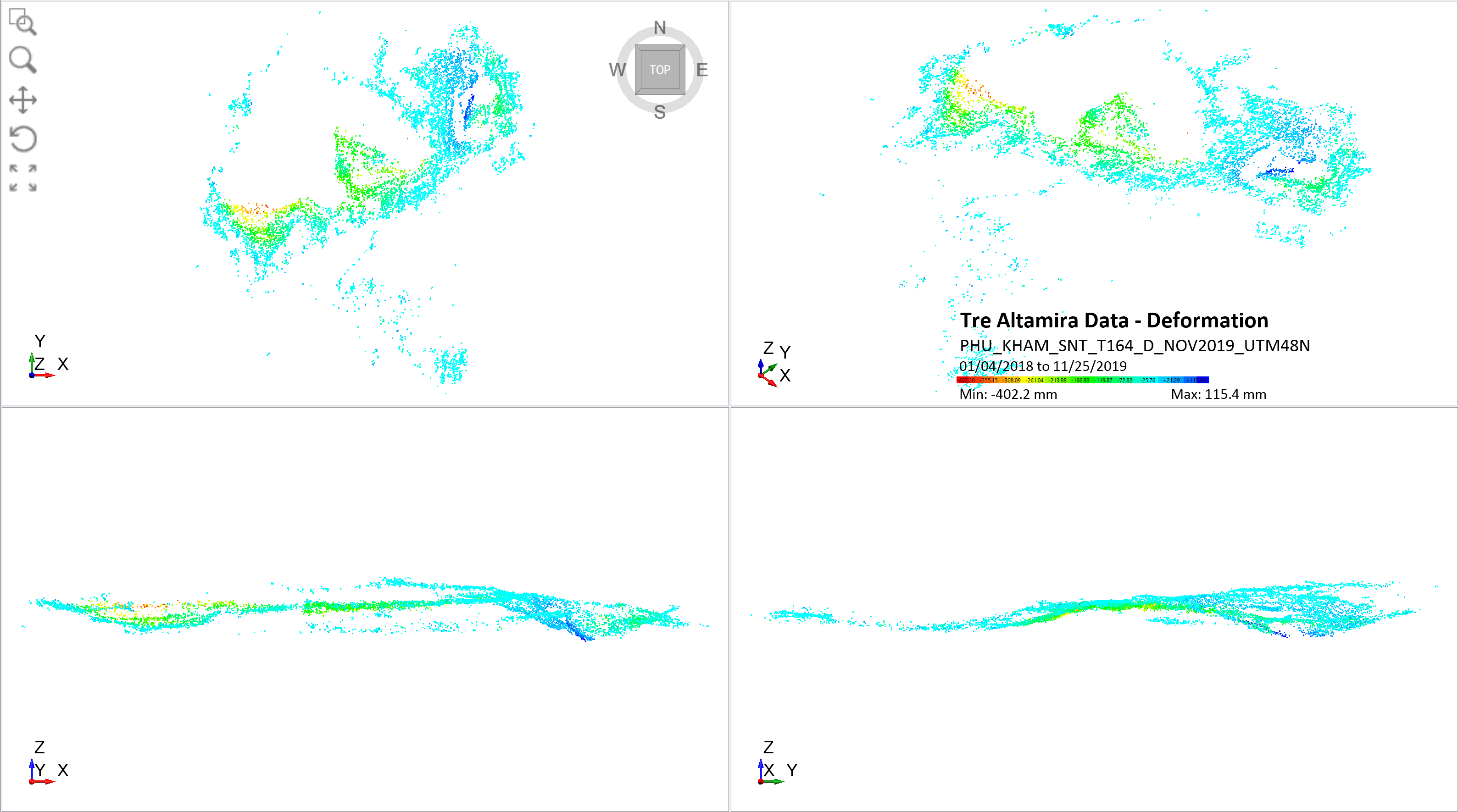Import Tre Altamira Data
The Import Tre Altamira Data feature allows users to import radar data, for ground and structural movement, provided by Tre Altamira. Imported data is displayed alongside model results for easy comparison. To import this data:
- Select: File > Import > Import Sensor Data > Import Tre Altamira Data.
- The Open File dialog will appear. This dialog only accepts shapefiles in .shp extension and filters out other files.
- After opening the data files, the Import Tre Altamira Data dialog will appear. This dialog allows users to define parameters for importing the data, including reference point, data type/properties and date range, as well as view the imported coordinates in a point cloud.
- Reference Point is used as the origin for geometry rendering. Users can set the reference point by either entering the X and Y values in the text boxes or clicking on the point cloud in the viewport on the right.
- Properties defines the data type to import. Deformation is the default data type if it exists in the shapefile. The user can also choose to display Acceleration or Velocity.
- Begin/End Dates are only active when the Deformation data type is selected. Otherwise, the section will be disabled and greyed out. Begin/End Date lists the dates when ground or structural movement were measured and the dates are grouped by years. The measured data at the End Date will be imported as radar map values.
- After defining the desired parameters, click OK to continue.
- Click OK to create the map.
Besides .shp files, Tre Altamira radar data should have other files, including .shx, .dbf, .sbx, .sbn, .prj, and .cpg, to complete the import process. The name of these files must all be the same. When a shapefile is selected, the coordinates from the .shp file are imported with other information from the .dbf file.
On the right side, there is a viewport that displays the coordinates in a point cloud. The viewport allows users adjusting the view by clicking on the Pan button and moving the mouse with the left button pressed, or zooming in and out by scrolling the mouse wheel. Users can go back to the default view by clicking the Zoom Fit button. The viewport also enables users to select the reference point on the point cloud in the view by clicking the mouse’s left button.
The Edit Point Cloud dialog will appear. A preview of the data is displayed in the viewport on the right side of the dialog. The Filter Values section allows the user to customize the range of values they want displayed in the radar map. Moving the cursor will update the viewport with the data that falls within the customized range.
Below shows an example of Tre Altamira imported deformation data. The red and yellow regions show the locations of highest deformation.
